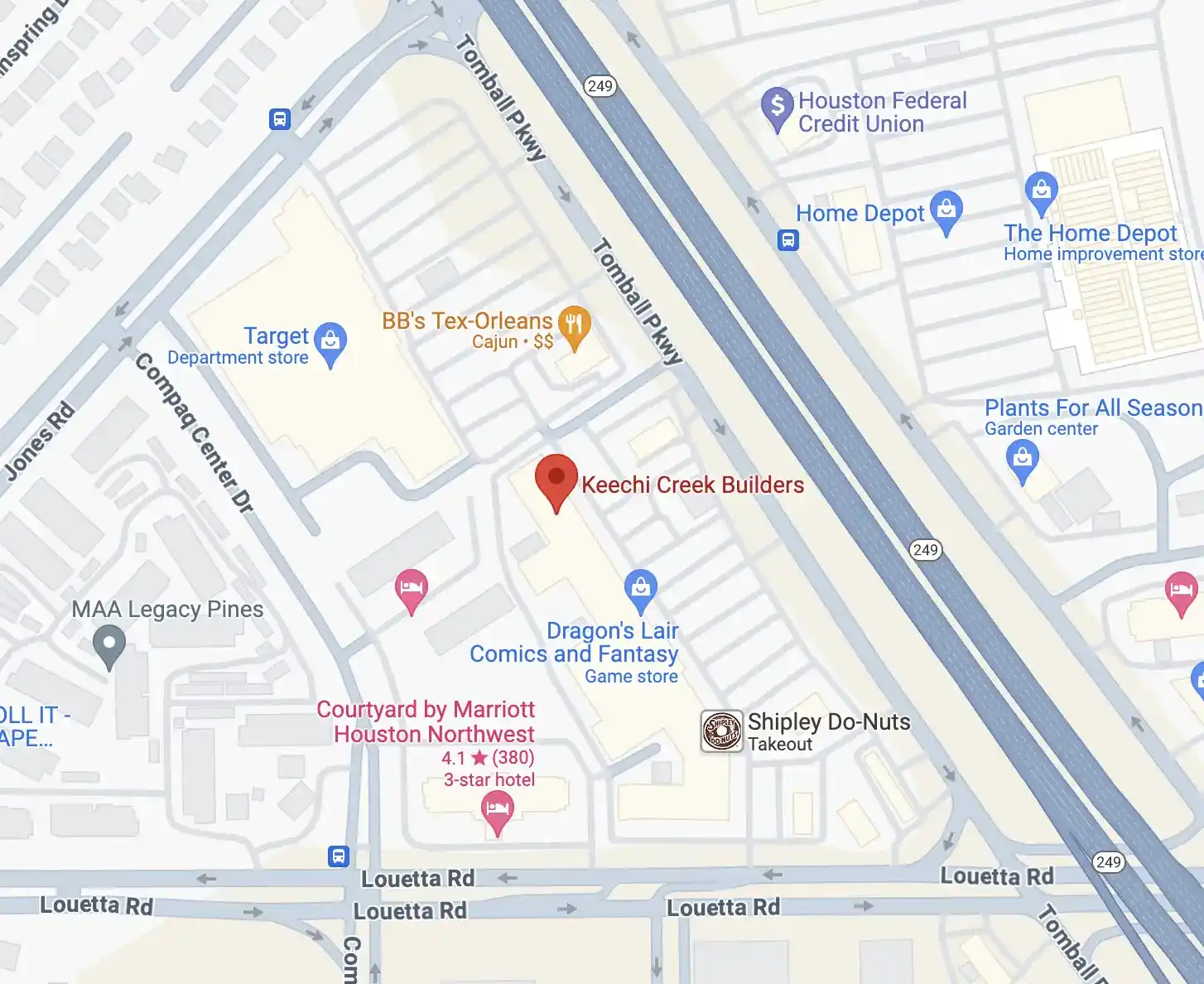Imagine you're standing in the heart of Houston, on a plot of land that's about to become your custom-built dream home. The construction journey can be a maze of decisions, rules, and processes - a labyrinth that's uniquely Houston's. You'll need to decode this city's specific regulations, find the right builder, design the perfect dwelling, and keep a vigilant eye on costs. And that's just the beginning. So, how do you navigate this tangled web without losing your sanity or your shirt? Let's find out.
Key Takeaways
- Navigating Houston's specific construction regulations is crucial for building a custom home.
- Selecting a qualified and reputable home builder can ensure a successful project.
- Designing a custom home requires incorporating personal aesthetics and lifestyle needs.
- Financial planning, including a contingency fund, is vital to avoid cost overruns in custom home construction.
Understanding Houston's Construction Regulations
To navigate the complex web of Houston's construction regulations, you'll need to develop a clear understanding of the city's specific requirements and standards for custom home construction. You're not alone in this journey, as many folks find these rules intimidating. They're stringent, yes, but they're also in place to ensure the safety and longevity of your custom home.
Permit acquisition is a vital part of this process. Each step of your custom home project, from the initial site work to the final inspection, requires a specific permit. You'll need to apply for these permits and secure approval before any work can begin. Be proactive and patient as these processes can take time due to thorough checks.
Furthermore, Houston's zoning laws should be on your radar. These laws dictate what can be built and where, impacting the design and location of your custom home. It's crucial to familiarize yourself with these rules to avoid any legal mishaps. For instance, restrictions on building heights or setbacks might affect your home's design.
In essence, understanding Houston's construction regulations is a challenging but necessary step in your custom home journey. Remember, patience and knowledge are your allies in this process. Familiarizing yourself with the permitting process, zoning laws, and local building codes ensures a smoother experience and fewer surprises along the way. Consulting with experienced professionals who are well-versed in the Houston custom home building process can help you navigate these complexities with confidence. By being proactive and thorough, you’ll set a strong foundation for turning your dream home into a reality.
Selecting a Custom Home Builder
Once you've navigated the intricacies of Houston's construction regulations, choosing a reliable custom home builder becomes your next crucial step. Carefully consider the builder's credentials and construction timelines before making a decision.
Start by verifying the builder's credentials. Is the builder licensed and insured in Houston? Do they have a positive reputation in the community? What about the quality of their past projects? Be sure to verify this information before moving forward.
Next, discuss construction timelines. It's imperative to establish a realistic timeline for your project, but remember, quality work takes time. Be cautious of builders who promise unusually quick completion times. They might be cutting corners which can lead to costly repairs down the line.
Take the time to communicate your expectations clearly. Ask potential builders about their approach to managing unexpected delays and how they handle changes to the initial plan.
Designing Your Dream Home
With the right builder in place, you're now ready to embark on the exciting journey of designing your dream home, a process that allows your unique vision and personal style to shine. This phase is where you'll start making decisions about the interior aesthetics and sustainable materials that align with your lifestyle and preferences.
- Start by envisioning your ideal living space. Think about the features you'd like to have and the atmosphere you want to create.
- Next, consider the materials you'd like to use, focusing on sustainable options. This will help you create a home that's not only beautiful but also eco-friendly.
- Lastly, think about your desired interior aesthetics. This includes everything from the color palette to the type of flooring.
Budgeting for Custom Home Construction
Creating a realistic budget for your custom home construction is a critical step that requires careful planning and comprehensive understanding of all potential expenses. It's not just about the construction costs; you'll also need to consider additional expenses like the cost of land, permits, and design fees.
One of the major risks you may face in the construction process is cost overruns. This happens when the actual cost of construction exceeds the estimated budget due to unforeseen circumstances or changes in the project. To prevent this, it's crucial to factor in a contingency fund of around 10-20% of your total budget.
In terms of financing options, traditional mortgages are often not suitable for custom homes. Instead, you might want to look into construction loans. These are short-term loans that cover the cost of construction and then convert into a regular mortgage once the home is completed.
Monitoring the Construction Process
After securing your financing and setting a realistic budget, it's essential to keep a close eye on the construction process to ensure everything stays on track. Monitoring the construction process involves several key areas, including Site Supervision and Quality Assurance.
Site Supervision is a critical element in the construction journey. It involves overseeing the day-to-day activities on the construction site and ensuring that the project's objectives are met. This role typically includes coordinating with subcontractors, managing resources, and addressing any onsite issues promptly.
Quality Assurance, on the other hand, is all about maintaining the high standards for which Houston's custom home construction is known. This involves regular inspections, testing of materials, and ensuring that the construction meets all the relevant local and national building codes.
To effectively monitor the construction process, remember to:
- Regularly visit the site and stay updated with the project's progress.
- Maintain open communication with your builder and any other professionals involved.
- Keep detailed records of all meetings, decisions, and changes to avoid any misunderstanding or conflict later.
Finalizing and Inspecting Your Home
Once your custom home's construction is near completion in Houston, it's crucial to focus on the final stages, which include a thorough inspection and finalizing all details of the project. You should ensure that every aspect of your home meets your specifications and adheres to the agreed-upon plans. An inspection checklist becomes an invaluable tool at this juncture.
This list should cover all areas of your home, from the foundation to the roof, and include all installations - plumbing, electricity, HVAC, and more. It's also essential to verify that all finishes, fixtures, and appliances are correctly installed and functioning.
After this, it's time for warranty considerations. Your builder should provide a warranty covering any potential defects or issues that might arise post-construction. This warranty typically covers workmanship, systems, and structural elements. Make sure you fully understand what's covered, how to make claims, and the duration of the warranty.










![prism2023 winner logo[8]](https://files.keechicreekbuilders.com/2024/11/prism2023-winner-logo8-e1731607791571.webp)
